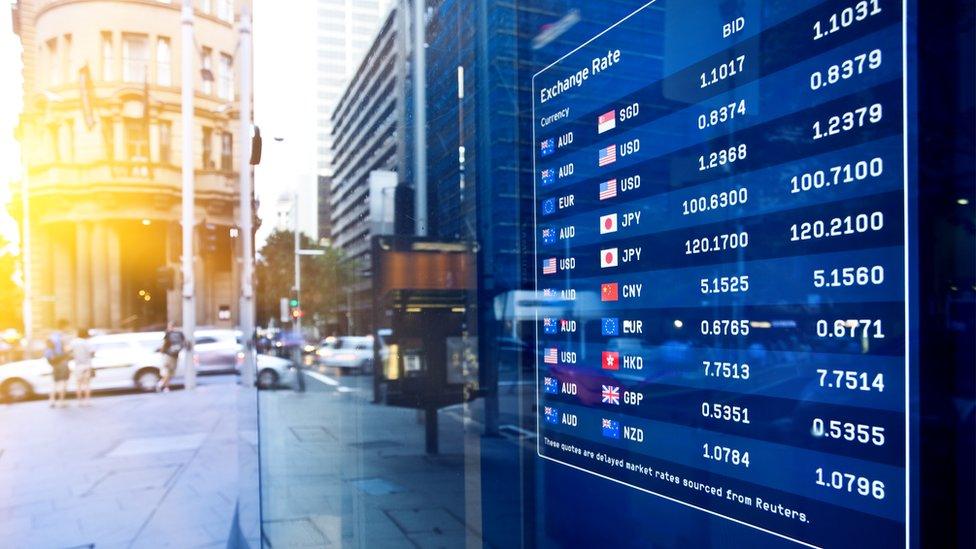Pound's gains erased amid Brexit deal jitters
- Published
- comments
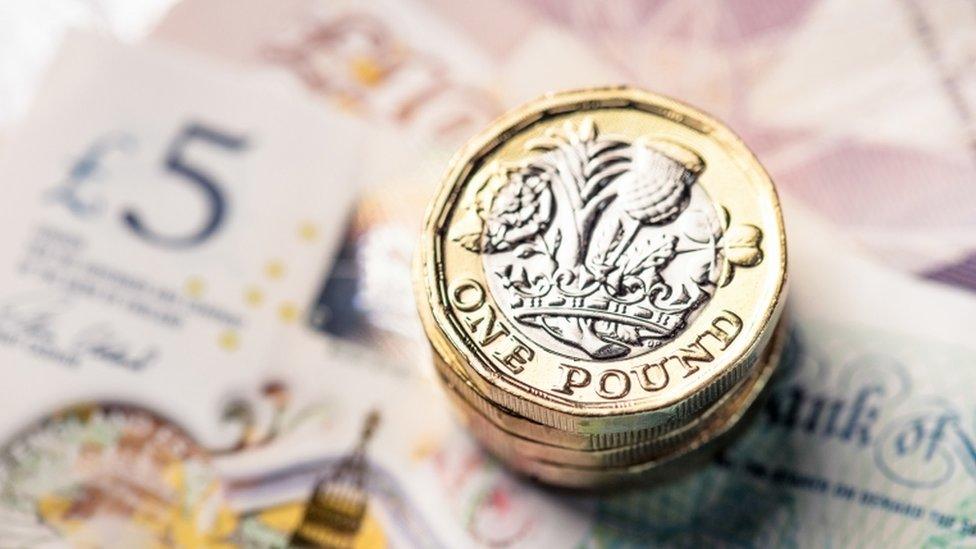
The rally in the pound triggered by news of a Brexit agreement has failed to last following concerns that the deal could still be scuppered.
Sterling had surged to a five-month high against the dollar, coming close to $1.30, after the UK and EU's negotiating teams agreed a deal.
However, the pound began to lose ground after Northern Irish party the DUP said it would not vote for the deal.
Sterling fell back below $1.28 in early afternoon before steadying again.
There was a similar pattern against the euro. At first the pound jumped above €1.16, before falling back to stand at €1.1582.
Worries about the possibility of the UK leaving the EU without a deal have been weighing on the value of the pound, as markets view a no-deal Brexit scenario as damaging for the UK's economy.
Sterling has risen in value whenever there have been signs that a deal could be reached.
Pound v Dollar
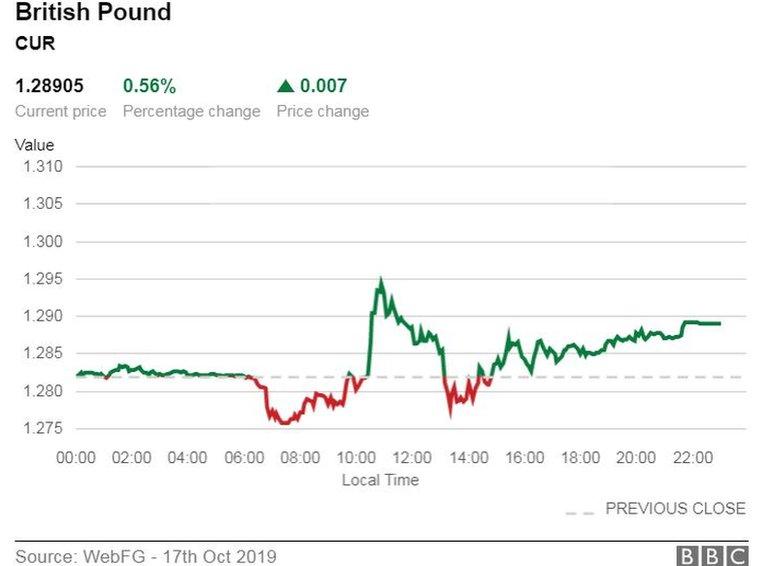
Announcing news of the breakthrough in the Brexit talks, UK Prime Minister Boris Johnson tweeted: "We've got a great new deal that takes back control."
European Commission President Jean-Claude Juncker said the deal was "a fair and balanced agreement for the EU and the UK and it is testament to our commitment to find solutions".
"I recommend that [EU summit] endorses this deal."
Paul Dales, chief UK economist at Capital Economics, said: "If the Brexit deal agreed by the EU and UK earlier today passes through Parliament, then there is scope for economic growth, interest rates, gilt yields and the pound to all rise further than is widely expected."
The agreed deal will still need the approval of both the UK and European parliaments, but the opposition from the DUP has cast doubts on its sign-off.
In a statement, the DUP, which the government relies on for support in key votes, said: "These proposals are not, in our view, beneficial to the economic well-being of Northern Ireland and they undermine the integrity of the Union."
Pound v Euro
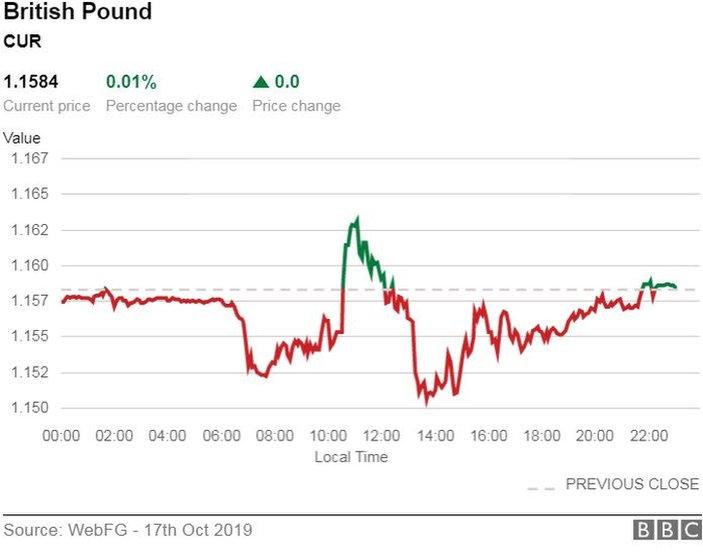
Analysts warned that this opposition from the DUP could scupper the deal.
Michael Brown, senior analyst at Caxton, noted that "some of the wind has been taken out of the pound's sails after reports that the DUP are not yet on board to back a deal".
"The Parliamentary arithmetic for passing a deal looks challenging," he said. "Attention will continue to focus on whether the new agreement will pass in the Commons on Saturday."
Seema Shah, chief strategist at Principal Global Investors, said: "Sterling is giving us the clearest indication of market sentiment on Boris Johnson's Brexit deal.
"Immediately after the deal was announced this morning, sterling rose to within a whisker of $1.30, before weakening back to around $1.28 as concerns about the DUP's lack of support took its toll.
"Negative positioning suggests that, if the deal passes on Saturday, you could see another climb in the pound to around $1.35-$1.40.
"If the deal fails on Saturday, you could see sterling re-testing lows of $1.20. Looking beyond that, if a 'no-deal Brexit' once again rears its ugly head, a level of $1.10 or below would be likely."
News of the agreement initially lifted the stock market too, but by the close, the FTSE 100 index had fallen back and closed just 0.4% higher.
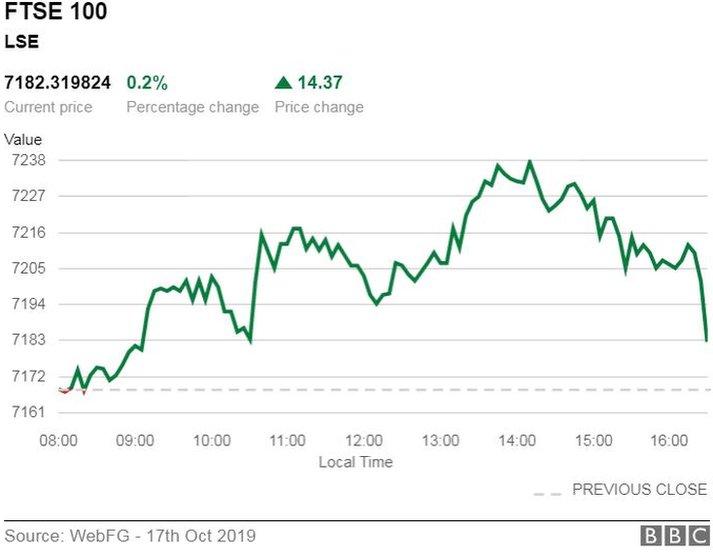
The prime minister wrote an open letter to British businesses following the deal's announcement, recognising business leaders' need for certainty and their preference for leaving the EU with a deal.
He said his deal would provide "the basis of a new relationship with the EU based on free trade and friendly co-operation".
"We can now get Brexit done and leave the EU in two weeks' time, without disruption and in a friendly way," the letter said.
Adam Marshall of the British Chambers of Commerce said many businesses would "reserve judgement until they see the detail", adding that firms "need a chance to analyse precisely what the terms of this agreement would mean for all aspects of their operations".
"Let's not forget, we've been here before," he added. "There is still a long way to go before businesses can confidently plan for the future.
"For business, this deal may be the end of the beginning - but it is far from the beginning of the end of the Brexit process."


For business, pretty much anything is better than no deal so there was a ripple of cautious applause from the business audience today.
Some groups, including the manufacturing lobby in Northern Ireland, specifically urged MPs to accept the deal while others, like the CBI said privately they did not want to take a political position.
For most businesses, the withdrawal agreement is less important than the vision of the future sketched out be the accompanying political declaration and here there were some specific concerns. First there are huge misgivings that the 14 months left until the end of the transition period is anywhere near long enough to thrash out a future relationship, second that the services sector which makes up 80% of the UK economy is barely mentioned, and third, that the commitment to maintain close regulatory alignment between the UK and the EU has been watered down.

- Published21 October 2019

- Published26 September 2022

- Published17 October 2019
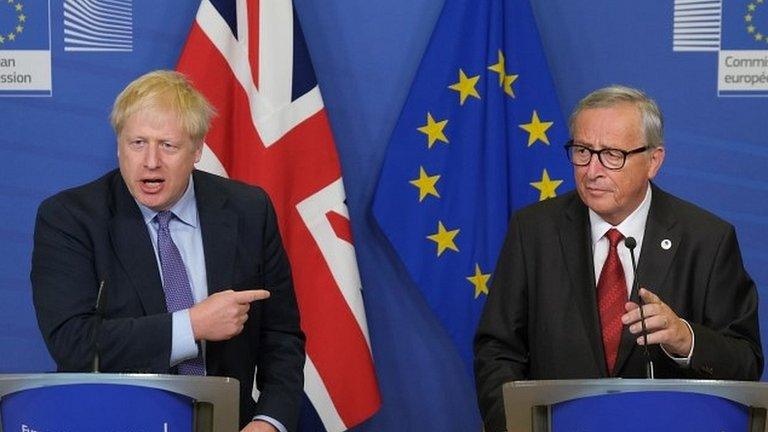
- Published17 October 2019
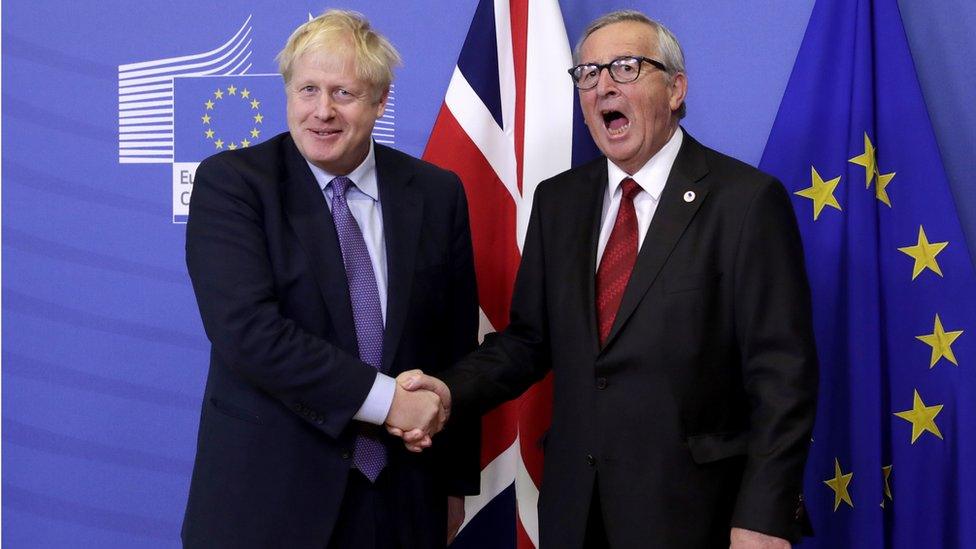
- Published17 October 2019
